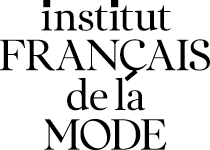| Type de document : | Ouvrage |
| Titre : | Histoire des femmes en Occident. Vol. 4 |
| Auteurs : | Geneviève FRAISSE, Directeur de publication ; Michelle PERROT, Directeur de publication ; Georges DUBY, Éditeur scientifique ; Michelle PERROT, Éditeur scientifique |
| Editeur : | Paris : PERRIN, 2002 |
| Langues | Français |
| Format : | 764 p. / ill. en N&B |
| Présentation : | ill. en N&B |
| Mots-clés : |
Nom Commun 19EME SIECLE ; FEMME ; HISTOIRE ; HISTOIRE DE L ART ; LITTERATURE |
| Résumé : |
Ce livre est le 4ème volume d'un ensemble traitant de l'histoire des femmes, des fondements d'habitudes mentales, de mesures juridiques, d'institutions sociales qui ont duré des siècles en Occident.
Si le XIXe siècle offre l'image d'un siècle sombre et triste, austère et contraignant pour les femmes, on aurait tort de croire cependant que cette époque est seulement le temps d'une longue domination, d'une absolue soumission des femmes à une codification collective précise, socialement élaborée. Car ce siècle signe la naissance du féminisme, mot emblématique qui désigne tout aussi bien des changements structurels importants (travail salarié, autonomie de l'individu civil, droit à l'instruction) que l'apparition collective des femmes sur la scène politique. Ainsi faudrait-il dire plutôt que ce siècle est précisément le moment historique où la vie des femmes change, plus exactement le moment historique où la perspective de leur vie change ; temps de la modernité où est rendue possible une position de sujet, individu à part entière et actrice politique, future citoyenne. This book is the fourth volume of a series dealing with the history of women, the foundations of mental habits, legal measures and social institutions that have lasted for centuries in the West. If the nineteenth century offers the image of a dark and sad, austere and constraining century for women, it would be wrong to believe, however, that this era is only the time of a long domination, of an absolute submission of women to a precise, socially elaborated collective codification. For this century marked the birth of feminism, an emblematic word which denotes both important structural changes (salaried work, autonomy of the civil individual, the right to education) and the collective appearance of women on the political scene. It should therefore be said that this century is precisely the historical moment when women's lives change, more precisely the historical moment when the perspective of their lives changes; a time of modernity when a position as a subject, as a fully-fledged individual and political actor, as a future citizen, is made possible. |
Exemplaires (1)
| Cote | Support | Localisation | Section | Disponibilité |
|---|---|---|---|---|
| 0.2 - 8867/T.4 | Ouvrage | Bibliothèque IFM | 0.2 Histoire | Disponible |











